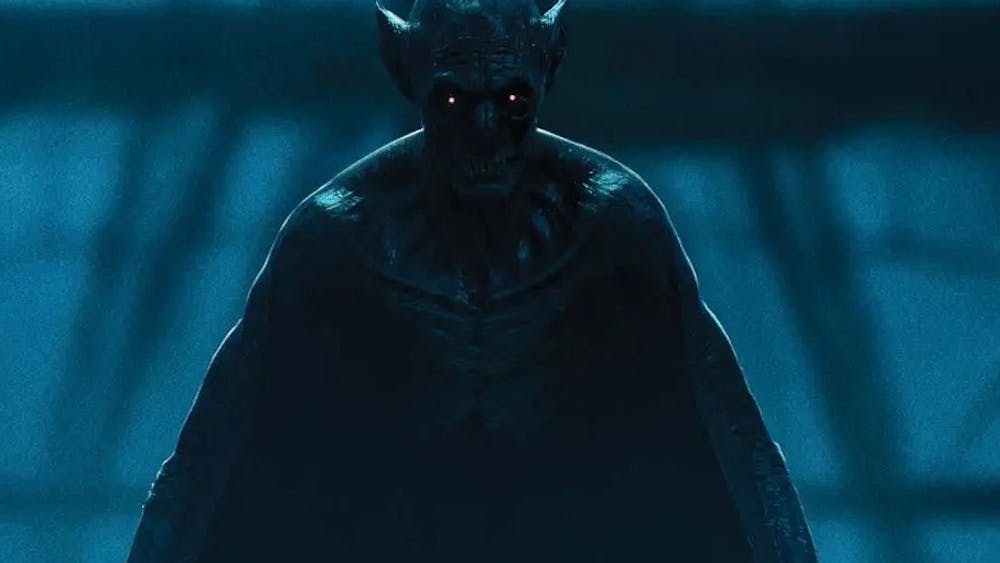A college dropout who left school to work on the Smothers Brothers Comedy Hour, Steve Martin is the classic, well-loved comedian of such films as "The Jerk," "Parenthood" and "Father of the Bride." So when Martin picks up a pen (or more than likely, gets out a laptop) to write, it usually consists of comedic pieces that he has written for The New Yorker. But in his latest novella, "Shopgirl," Martin proves he's up to more than tomfoolery.\n"Shopgirl" does have its humorous moments, but it's not classic Martin. Rather, it is the dark humor of reality (if one considers Los Angeles to be reality, but I won't go into that). Martin's first full-length fiction book is as fully developed as the premise is original. Martin updates the age-old love triangle consisting, in his tale, of Mirabelle, a lonely young girl in need of true love; Ray Porter, a well-off older man exploring the ways of women; and Jeremy, a young convenient "knight," although he's hardly the shining armor type.\nThe title character is Mirabelle, 28, who has a master's degree in fine arts. Mirabelle moved to California with dreams of a "real" life but instead finds herself dependent on a myriad of anti-depressants and working at Neiman Marcus to pay off college loans. She's looking for something unlike her Vermont home, which is poorly described by Martin. Her life is tragically redundant and hardly a life at all. The description of the glove department in which she works depicts the tedium of her life. She waits all day, careful not to appear too bored in a department that is all but extinct and finds a modicum of fulfillment in the few customers who stop by throughout the week. This void in social interaction parallels her life outside of work. A sex-crazed girl in the perfume department seemingly foils Mirabelle at one point, but neither she nor Jeremy is given enough description or time to develop in Martin's prose to fully come to life.\nMartin's prose is bland and overly descriptive. He does not provide enough depth or description in character development but goes well beyond when analyzing day-to-day life and characters' appearances and actions. This style occasionally impedes the flow of the story, but overall it enriches the text and forces the reader to pay more attention to one's unconscious observations throughout the daily routine. He accomplishes this with an omniscient narrator and thus lends a unique angle to the story. One technique, which Martin developed well but failed to use often enough, included dialogue coupled with his role as the narrator. There is one scene late in the book between Mirabelle and Ray to which everyone can relate -- the interpersonal communication including the sexes. Martin, with his dark humor, describes Ray's stereotypical goal of getting into bed without a commitment, and Mirabelle's stereotypical interpretation of that as commitment and love.\nThe novel is too short to develop more than the superficial plot of the triangle between Mirabelle, Ray and the all-too-absent Jeremy. Martin is clearly new to the genre, and his novella leaves something to be desired. But he has the mark of a talented observer, and one can only hope he will develop this skill into a full-length work that will include a less convenient turn of events.
'Shopgirl' not typical Martin
Get stories like this in your inbox
Subscribe





